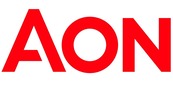An overview of key policy and cover types, best practices for choosing the right policy and making claims
Business insurance is a purchase you should make, not necessarily one that you want to. But it’s also no understatement that a lot can go wrong while running your business – despite your professionalism and expertise, some things are still out of your control. Whether it’s theft, a customer injury, property damage or a data breach, these are just a few things that can occur. Without insurance, these issues may result in huge costs for your business that you will have to pay.
Key types of business insurance that you should consider:
Professional Indemnity Insurance
Professional Indemnity (also known as PI insurance) may cover claims made against your business by customers or other third parties alleging that in performing your professional services, your business has caused them loss or harm. PI insurance will often cover several costs that arise from an allegation of professional negligence, including claim investigation costs, legal costs, settlements and court orders or judgments associated with claims against your business and public relations costs, provided they are covered by the policy.
Public Liability Insurance
Public Liability insurance may protect your business against claims of personal injury or property damage made by a third party because of your negligent business operations. Public Liability insurance typically covers damages you’re legally responsible to pay a third party, for the personal injury or property damage caused by your negligent business activities. This could also include their legal fees. It may also cover your legal costs incurred in responding to the claim, even if a court decides you’re not liable to the third party.
Product Liability Insurance
Product Liability insurance may help protect against claims of personal injury or property damage that a third party suffers (or claims to have suffered) as a result of your business’s product. Product Liability insurance typically covers legal liability and legal costs that result from a claim. Depending on the policy you take out, Product Liability may also cover incidents that occur at your business premises, as well as incidents at other locations. Public & Products Liability are usually sold as one combined policy.
Cyber Insurance
Cyber insurance may help cover your business’s financial losses if it falls victim to cybercrime. It could help cover a wide range of cyber related risks, and risks relating to information technology infrastructure. A claim under Cyber insurance may cover financial losses your business suffers as a result of a cyber incident (known as first party cover), as well as losses suffered by third parties as a result of the incident (known as third party cover).
Business Insurance Pack
Business Insurance Pack (also known as BP or Biz Pack) may help protect your business and its assets against liability and unexpected insured events. BP usually has various sections of cover, and the insured can select the sections that they require. For example, the sections of cover that are commonly included in a BP policy include Fire & Perils, Theft, Glass and Business Interruption, Public and Products Liability.
Personal Accident Insurance
Personal Accident insurance may help protect individuals in the event of accidental injury or sickness that results in you being unable to work. Cover may include weekly benefits; capital benefits and optional weekly business expenses cover to support you if you are injured or sick and are unable to work
Choosing between business insurance policies
With the wide range of providers, brokers and policy types, it’s only normal to feel overwhelmed when deciding which insurance policy to take out, leading many business owners to settle for the lowest price they find without considering the features and coverage.
Here are a few key factors to consider when choosing between policies:
- Are additional benefits automatically included in the policy or available at an extra cost? For example, unlimited retroactive date, no excess for certain claims or complimentary legal advice.
- Does the insurance provider offer run-off cover for claims-made policies? Professional Indemnity policies are usually a claims-made policy, which means that they can respond to claims that are made against you and notified to the insurer while the policy is in force (during the policy period). When you leave the profession or retire, claims can still be made against you for services you provided when you were working, so to insure you for your past work, you may require run-off cover.
- What is the insurance provider’s claims process like? Making a claim can be stressful, so the last thing you’d need at that point is a lengthy process. It’s wise to choose an insurer that has a dedicated claims team you can contact (in addition to an online lodgement process).
- Does your insurance provider or broker have a deep understanding of your industry? Do they stay on top of emerging risks and regularly reviews their policies to ensure they cover the risks adequately?
- Can your insurance provider meet your additional needs as your business grows?
An experienced insurance broker may help you arrange a policy that is customised for the common risks of your industry. They may also assist you manage your claim with the insurer so you can get the most out of your cover.
Read more –> Business Insurance Guide for Health Professionals
